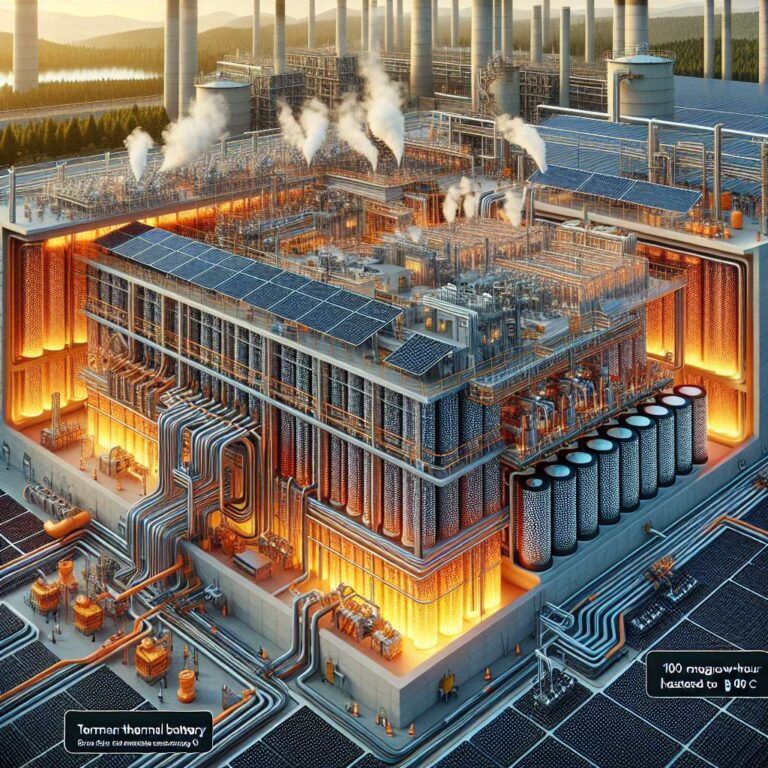Rondo Energy has turned on what it says is the world’s largest thermal battery, a 100 megawatt-hour system designed to store electricity as high-temperature heat and deliver it on demand. Powered by an off-grid solar array, the first full-scale installation will provide steam for enhanced oil recovery. The core concept is straightforward: use electricity to heat a robust, inexpensive material such as bricks, hold that heat, and release it later either directly for industrial processes or to generate electricity.
According to the company, the system has operated for 10 weeks and met efficiency and reliability targets. The thermal bricks reach temperatures over 1,000 C, and more than 97 percent of the input energy is returned as usable heat. The project represents a significant scale-up from Rondo’s 2 megawatt-hour pilot launched in 2023 and is the first of the mass-produced, full-size heat batteries the company intends to deliver to customers. With around 20 percent of global energy demand devoted to industrial heat, most of it still supplied by fossil fuels, a successful large-scale thermal battery marks meaningful progress toward cutting industrial emissions.
The choice to deploy the inaugural unit for enhanced oil recovery complicates the climate narrative. Critics argue that technologies aiding fossil fuel extraction risk extending the lifespan of polluting infrastructure. Rondo founder and chief innovation officer John O’Donnell counters that the company is “decarbonizing the world as it is today,” emphasizing that replacing natural gas-fired heat with solar-powered steam is a practical step given cheap solar, expensive natural gas, and policies in California. Having a customer willing to fund a full-scale project was also crucial to proving out the technology in the field.
Rondo says more units are on the way, with three additional full-scale systems under construction in Europe. The company expects faster and cheaper deployments informed by lessons from the California project. Manufacturing is underway at Rondo’s factory in Thailand, which it says can produce 2.4 gigawatt-hours of heat batteries today. While enhanced oil recovery remains a contentious application, the successful operation of this system is a tangible validation of thermal energy storage at scale. As O’Donnell puts it, “This is a really dumb, practical thing that’s ready now.”

